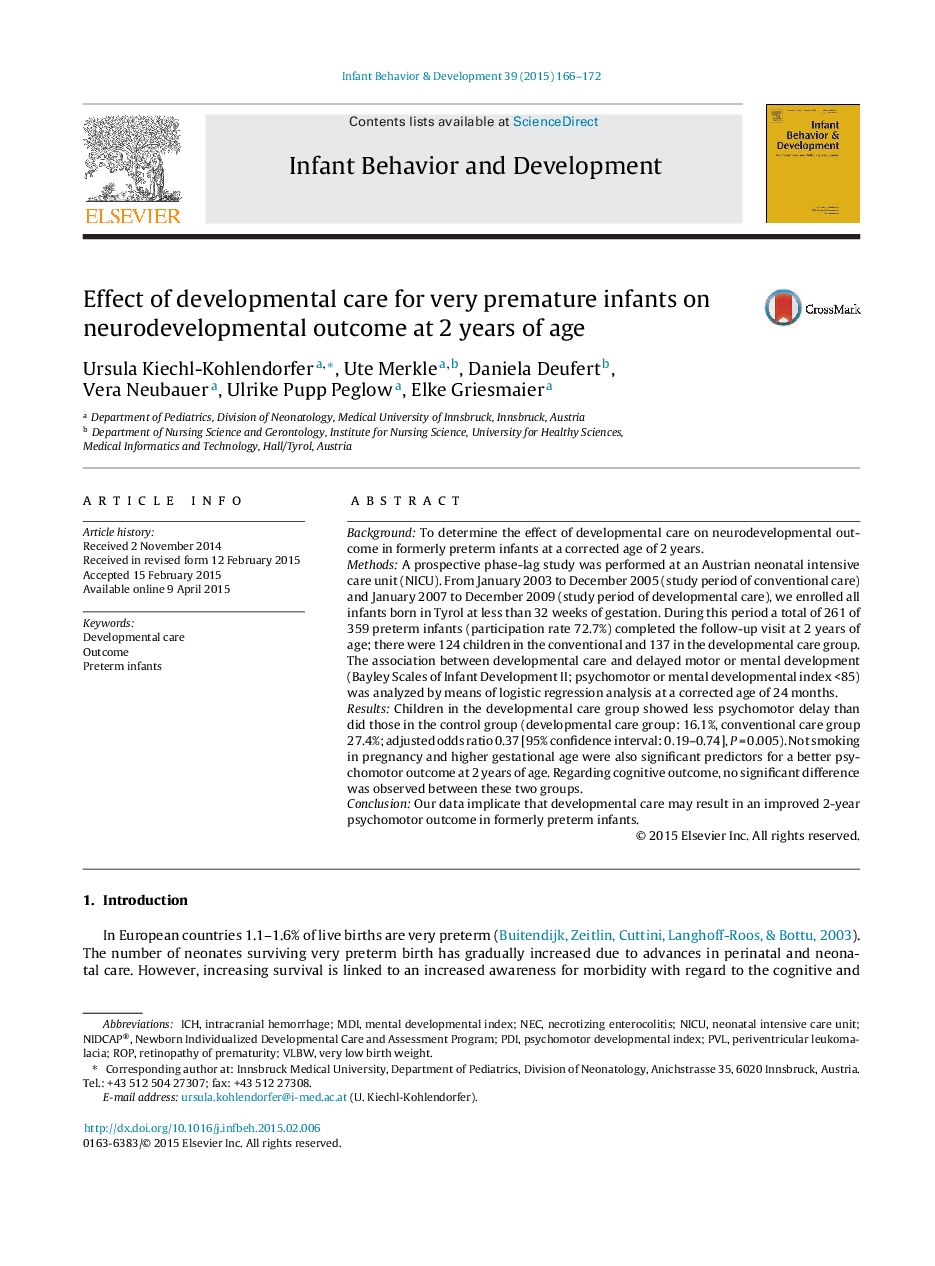| Article ID | Journal | Published Year | Pages | File Type |
|---|---|---|---|---|
| 917206 | Infant Behavior and Development | 2015 | 7 Pages |
•There is still debate if developmental care practices on neonatal intensive care units improve neurodevelopmental outcome of preterm infants.•We compared neurodevelopmental outcome between 124 children in the conventional care group and 137 children in the developmental care group at a corrected age of 2 years.•Our results showed a positive effect of developmental care on psychomotor outcome in formerly preterm infants; regarding cognitive outcome no effect could be observed.
BackgroundTo determine the effect of developmental care on neurodevelopmental outcome in formerly preterm infants at a corrected age of 2 years.MethodsA prospective phase-lag study was performed at an Austrian neonatal intensive care unit (NICU). From January 2003 to December 2005 (study period of conventional care) and January 2007 to December 2009 (study period of developmental care), we enrolled all infants born in Tyrol at less than 32 weeks of gestation. During this period a total of 261 of 359 preterm infants (participation rate 72.7%) completed the follow-up visit at 2 years of age; there were 124 children in the conventional and 137 in the developmental care group. The association between developmental care and delayed motor or mental development (Bayley Scales of Infant Development II; psychomotor or mental developmental index <85) was analyzed by means of logistic regression analysis at a corrected age of 24 months.ResultsChildren in the developmental care group showed less psychomotor delay than did those in the control group (developmental care group: 16.1%, conventional care group 27.4%; adjusted odds ratio 0.37 [95% confidence interval: 0.19–0.74], P = 0.005). Not smoking in pregnancy and higher gestational age were also significant predictors for a better psychomotor outcome at 2 years of age. Regarding cognitive outcome, no significant difference was observed between these two groups.ConclusionOur data implicate that developmental care may result in an improved 2-year psychomotor outcome in formerly preterm infants.
